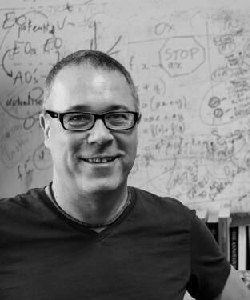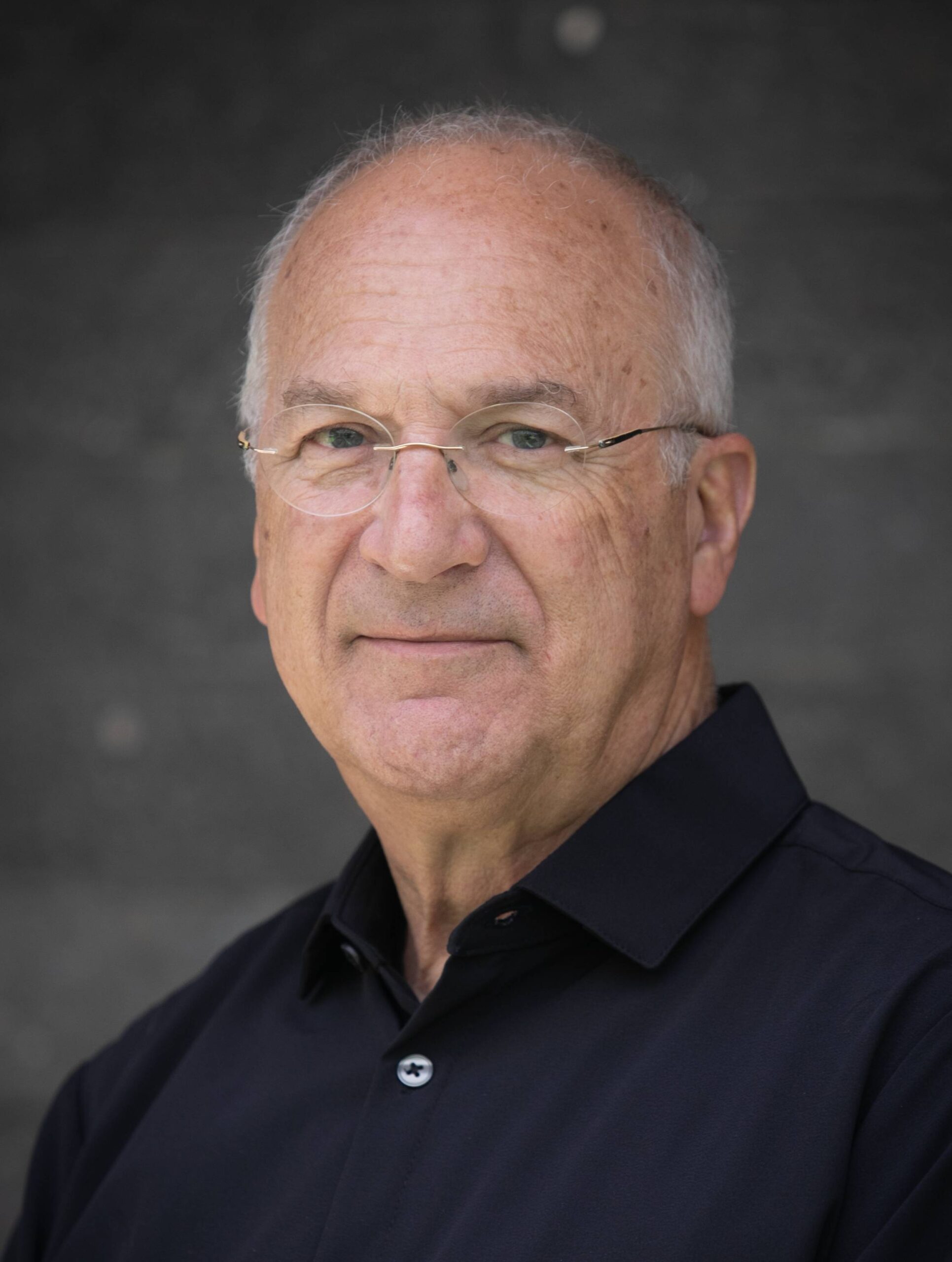Keynote Speakers
Prof. J. Mark Bishop
Emeritus Professor of Cognitive Computing at Goldsmiths, University of London

Title: The colour of cognition: from abstract computation to the lived mind
Abstract: Ever since CPP Snow’s Rede Lecture of 1959, there has been a general perception amongst educated people of life lived in two cultures: “On the one hand the departments of the arts and humanities dealing with ‘the living and experiential’ in a world of meaningful cognition; information as semantics; communication through language; signs and interpretations and on the other hand the sciences and mathematics dealing with the non-living and mechanical in a world of artificial cognition; information as statistics; communication through signals; energy, forces and matter all governed by strict laws. In this light these two cultures live in enforced ontological separation; they do not share the same reality”.
Conversely, modern approaches to cognitive science, emphasising the body and its interactions with environment and society, offer new tools with which to bridge this ontological gap and in so doing open up a new, shared reality: a reality of neurons living in the brain; the brain living in the body; the body living in the world & society. This radical, holistic approach to cognition focuses on the development of four research themes in cognitive science – the so-called ‘4E’s; the ‘embodied, embedded, enactive and ecological’ – each of which has its own vibrant research programme; but which also come together to form a larger, coherent, trans-disciplinary whole.
In this talk I will present my evidence concerning Artificial Intelligence and [Turing Machine] Functionalism, which fatally undermines the idea of mind as mere computational mathesis, and contrast with modern cognitive science, wherein mind is coextensive with life.
Bio: Prof J. Mark Bishop is now an Emeritus Professor of Cognitive Computing at Goldsmiths, University of London where he has been a Director of the TCIDA (The Centre for Intelligent Data Analytics). In that context, he has led a group that has successfully developed commercial state-of-art analytic systems for fraud detection and business-to-business e-procurement. Over his career Mark’s research has spanned the theory and application of Artificial Intelligence and its underlying philosophy; in this context he is regularly invited to advise on policy at the UN (Geneva/Turin/Birmingham), the EC (Brussels) and the UK (Parliament/Whitehall). In 2010 Mark was elected to Chair the AISB. The AISB (the UK Society for Artificial Intelligence & the Simulation of Behaviour) is the world’s oldest society for the study of AI and Mark served a four-year term as Chair [2010-2014] during which he was co-opted onto the Organising Committee of ICRAC (International Committee for Robot Arms Control). He has served as associate Editor of seven academic journals in the field of AI and Cognitive Science and as a Business Consultant on both AI & AI/Data ethics. Mark enjoys a high media profile and is regularly asked for comment in both national and international media; most notably critiquing the doomsday predictions of Prof Stephen Hawking, Elon Musk et al. (concerning the threat posed by AI). In this context, an invited piece for the New Scientist magazine became the most downloaded article of the issue. In 2016 Mark was invited to discuss AI with Prof Murray Shanahan across an episode of Radio 4’s “Agree to Differ”.
Prof. David Harel
The William Sussman Professorial Chair
Dept. of Computer Science and Applied Mathematics
The Weizmann Institute of Science

Two Projects on Human Interaction with AI
Abstract: I will present two projects that attempt to shed new light on the role computers will be playing in the future.
The first we term “The Human-or-Machine Issue”. Turing’s imitation game addresses the question of whether a machine can be labeled intelligent. We explore a related, yet quite different, challenge: in everyday interactions with an agent, how will knowing whether the agent is human or machine affect that interaction? In contrast to Turing’s test, this is not a thought experiment, but is directly relevant to human behavior, human-machine interaction and also system development. I will argue that exploring the issue now is useful even if machines will end up not attempting to disguise themselves as humans.
In the second project, we propose a systematic programming methodology that consists of three main components: (1) a modular incremental specification approach (specifically, scenario-based programming); (2) apowerful, albeit error-prone, AI-based software development assistant; and (3) systematic iterative articulation of requirements and system properties, amid testing and verification. The preliminary results we have obtained show that one can indeed use an AI chatbot as an integral part of an interactive development method, during which one constantly verifies each new artifact contributed by the chatbot in the context of the evolving system.
Bio: David Harel has been at the Weizmann Institute since 1980, and is currently President of the Israel Academy of Sciences and Humanities. In the past, he worked in several areas of theoretical computer science, including computability theory, logics of programs, database theory, and automata theory. Over the years, he became involved in software and systems engineering, visual languages, graph layout, modeling and analysis of biological systems, odor synthesis and communication, and prosody analysis. He invented Statecharts, co-invented Live Sequence Charts, and was part of the team that designed Statemate, Rhapsody, the Play-Engine and PlayGo. Among his many awards are the ACM Karlstrom Outstanding Educator Award, the Israel Prize, the ACM Software System Award, the Emet Prize, the IEEE Harlan Mills Award, and six honorary degrees. He is a Fellow of ACM, IEEE, EATCS and AAAS, an international member of Academia Europaea, the US National Academy of Sciences, the US National Academy of Engineering, the American Academy of Arts and Sciences, and the Chinese Academy of Sciences, and is a Fellow of the Royal Society (FRS).
Prof. Dr. Sören Auer
Leibniz Universität Hannover

Title: Towards Neuro-Symbolic AI with Knowledge Graphs and Generative AI
Abstract: In this talk, we delve into the cutting-edge realm of Neuro-Symbolic Artificial Intelligence (AI), focusing on the synergistic integration of Knowledge Graphs and Generative AI such as Large Language Models. Neuro-Symbolic AI represents a transformative approach that combines the robust, interpretable reasoning capabilities of symbolic AI with the adaptive, data-driven strengths of neural networks. The talk will illuminate how this fusion offers a promising pathway towards more intelligent, explainable, and reliable AI systems. As a showcase of our approach towards neuro-symbolic AI we will demonstrate Corporate Memory, an enterprise ready Knowledge Graph and Neuro-Symbolic AI platform used by major Enterprises as well as the Open Research Knowledge Graph. The ORKG is representing research contributions in a structured and semantic way as a knowledge graph. The advantage is that information represented in a knowledge graph is readable by machines and humans. For creating the knowledge graph representation, we rely on a mixture of manual (crowd/expert sourcing) and (semi-)automated techniques leveraging Large Language Models. Only with such a combination of human and machine intelligence, we can achieve the required quality of the representation to allow for novel exploration and assistance services for enterprises and researchers. As a result, a scholarly knowledge graph such as the ORKG can be used to give a condensed overview on the state-of-the-art addressing a particular research quest, for example as a tabular comparison of contributions according to various characteristics of the approaches.
Bio: Following stations at the universities of Dresden, Ekaterinburg, Leipzig, Pennsylvania, Bonn and the Fraunhofer Society, Prof. Auer was appointed Professor of Data Science and Digital Libraries at Leibniz Universität Hannover and Director of the TIB in 2017. Prof. Auer has made important contributions to semantic technologies, knowledge engineering and information systems. He is the author (resp. co-author) of over 200 peer-reviewed scientific publications. He has received several awards, including an ERC Consolidator Grant from the European Research Council, a SWSA ten-year award, the ESWC 7-year Best Paper Award, and the OpenCourseware Innovation Award. He has led several large collaborative research projects, such as the EU H2020 flagship project BigDataEurope. He is co-founder of high potential research and community projects such as the Wikipedia semantification project DBpedia, the Open Research Knowledge Graph ORKG.org and the innovative technology start-up eccenca.com. Prof. Auer was founding director of the Big Data Value Association, led the semantic data representation in the Industrial/International Data Space, is an expert for industry, European Commission, W3C, the German National Research Data Infrastructure (NFDI) and the European Open Science Cloud (EOSC). More info
